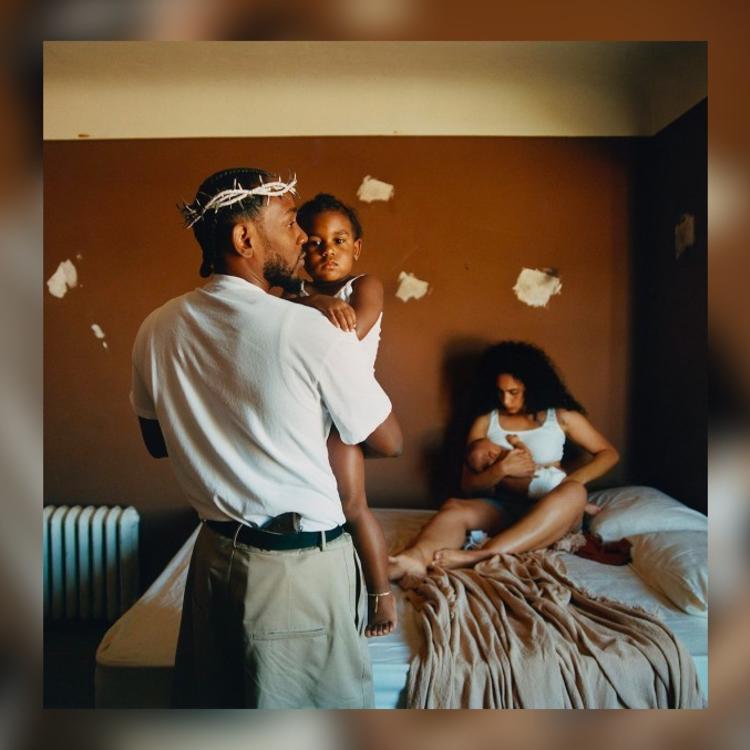Tune in: Mr. Morale and The Big Steppers
We’ve reached the end of a 5-year long tunnel. And at the end of our 1,855-day journey, Kendrick Lamar greets us with what is likely one of the most important albums of the decade.
Having built up a reputation as one of the greatest artists of all time through his social activism and genius lyricism, Lamar’s latest release, “Mr. Morale & The Big Steppers,” on May 13 is nothing short of a masterpiece.
The double album, split into two discs—the titular “Big Steppers” and “Mr. Morale”—is a true cinematic experience. The first track, “United In Grief,” starts off with lyrics that seat the audience right across from Lamar, in the role of a therapist. “I’ve Been Going Through Something / One-Thousand Eight-Hundred And Fifty-Five Days / I’ve Been Going Through Something” and “Tell Them, Tell Them, Tell Them The Truth.”
Through anger and denial, grief and realization, Lamar pours himself out into the first disc, which emblemizes “Big Steppers.” Particularly notable were “Father Time” and “We Cry Together,” both of which address the toxic masculinity he picked up from his father and touch on its prevalence in society. “We Cry Together” is especially intense, reminiscent of an Eminem skit with Lamar and actress Taylour Paige slinging a flurry of curses and insults—76 F-bombs, in fact— back and forth. It also includes a throwback to his verse in his 2021 song with cousin Baby Keem, “Family Ties,” about “overnight activists” hopping on a bandwagon of fake political activism, raising awareness through his musicality.
The “Mr. Morale” portion of the album is a breakthrough, where Lamar’s development gradually takes an upward trend, as he opens up about some of his deepest confessions. Touching on rape and trauma in “Mother I Sober,” Lamar talks about how his mother’s concern regarding his relationship with his cousin because of her own experience with sexual assault.
Unlike the majority of artists who shy away from their controversies, Lamar addresses some of his own faults in this song about acceptance of the LGBTQ+ community, and through “Auntie Diaries” he addresses his previous homophobic and transphobic actions, not shying away from intense language to highlight his environment and former aversion to his own transgender relatives. To top it all off, Lamar finishes the song with a callback to an encounter with a fan he had on stage in 2018 where he prevented her from singing the n-slur. He acknowledges that if he is to uphold that moral character of equality for the Black community, he must respect the LGBTQ+ community in the same manner.
“Mirror” is the album’s closing track and predominantly discusses Lamar himself. Lyrics like “Sorry I didn’t save the world, my friend / I was too busy buildin’ mine again” and “I choose me, I’m sorry”, complete his therapy. Lamar wants to focus on his own life—his family, his company pgLang—all the aspects that don’t involve the pedestal onto which the world has raised him. He feels vulnerable and no longer wishes to stay on it. In the end, Kendrick Lamar chooses himself.
This album does not particularly highlight the production or lyricism that we know Lamar is capable of. Rather, the audience is catching up with him, who helped guide so many African Americans around the world in the face of racial oppression in 2015’s “To Pimp a Butterfly”, followed by a spiritual character reflection in 2017’s “DAMN.”. But now, he pulls the curtain back and reveals himself in the flesh. The album provides a thought-provoking and inspirational self-reflection, emphasizing Lamar’s intentions in producing the album.
A “Big Stepper” is what society wants Lamar to be, and what he unwillingly came to see himself as: the greatest rapper alive, the savior of society and the “Messiah” of the Black community. “Mr. Morale” is what he has grown into: the realization that Kendrick Lamar, in the end, is just a man. And no one man can uphold the burden that has been placed on Lamar time and time again, which is why “Mr. Morale & The Big Steppers” is so important—not because we as an audience needed it, but because Kendrick Lamar himself did. In wake of lighting up the world, it was he himself who needed saving.
Your donation will support the student journalists of Diamond Bar High School. Your contribution will allow us to purchase equipment and cover our annual website hosting costs.









